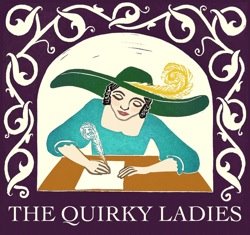
As I work on my WIP, I become acutely aware of the "rules" of writing. You know, the ones that say passive voice is bad, adverbs are bad, adjectives are bad. Each and every sentence gets scrutinized and rewritten, as I attempt to leave just two approved parts of speech behind.
Nouns and verbs.
And not just any old verbs....must be ACTION verbs.
Which makes me wonder...who the hell decided these rules, anyway? It seems like word discrimination to me. What if your character is passive? What if your scene is lazy? What if an overabundance of action verbs becomes irritating? So, it's time for me to make a confession....
I like passive sentence construction.
I like adverbs.
I like adjectives.
The bottom line is that writing with only nouns and action verbs gets boring. The other parts of speech help mix it up a bit, keep things interesting.
Consider this....
A dishrag.
Now, consider this....
A bloody dishrag.
A dirty dishrag.
A starched, pressed dishrag.
These wonderful, unfairly-discriminated-against-words called adjectives give us important clues about a scene and/or character. Why is the dishrag bloody? What kind of person irons his dishrags? Adjectives are getting a bum rap for sure.
Here's another sentence to consider...
He smiled.
Noun and action verb are present. And boring!
Let's try....
He smiled brilliantly.
He smiled wickedly.
He smiled tentatively.
Think about how much more information we now have about the character and his action. Way more interesting. Adverbs rock!
Now, let's address passive sentence construction. Here's a "proper" sentence...
Annie regarded her plain reflection in the mirror.
Here's another way to do it using the frowned-upon, evil passive verb...
Annie was plain. Annie was boring. Annie was the most unpopular girl in school.
I personally think using this passive construction is more effective. Annie looking at herself in the mirror is a passive activity, she's not a go-get-em type of gal. She has bad self-esteem and that comes across using this type of passive sentence structure and repetitive style.
So, in conclusion, I would just like to say that word discrimination has no place in writing. And anyone who passes judgment on these sad and misbegotten words should do a little bit of soul-searching. There is a time and place for all parts of speech and all forms of sentence construction. And don't even get me started on fragments.
Seriously.
Rule-Breaker Extraordinaire,
Penny

8 comments:
Rules? We don't need no stinkin' rules!
All kidding aside, it's easy to get so mired in the "rules" when you're first starting out that you fix everything to death. It's the death of your story, your dialogue, your voice.
Great post! Some of my best friends are fragments (grin). Every type of word has its place. I agree with you Penny.
Dalton...yeah, that is definitely a problem...If your voice happens to be very flowery and ornate, you are gonna need those stinkin' adverbs and adjectives! Not everyone has to have a tight, streamlined voice. Variety is the spice of life.
Hi Michelle! Fragments are my friends. They're lonely. They need buds.
Someone needs to play the devil's advocate and I find myself sporting a bifurcated tail. When I spot an -ly word in my work, I have to ask myself if I've missed a chance to use a more specific verb or noun. Too many modifiers means I may have been a lazy writer.
As Angela James, editor of Carina, says: "Not every noun deserves an adjective."
Hi Mia! I know you and I are on opposite sides with this grammatical dilemma....hee hee! I agree...there are times that a more specific noun or verb may improve a sentence before a modifier...but not always. Also, mixing it up is key. Writing that is too sparse or too flowery gets stale.
Dear rule-breaker Penny - I had an editor...once...who made me remove every single adverb and adjective. Talk about mouth dropping open! While I agree that I don't need to write or read an 'ly' ending in every sentence, a little color is a nice thing - the selective use of adjectives and adverbs expands a story - rounds it out, fills it in. Nice post, girl!
Hi Julia...you know I like breaking rules! That editor sounds wack. Just sayin'.....
Post a Comment